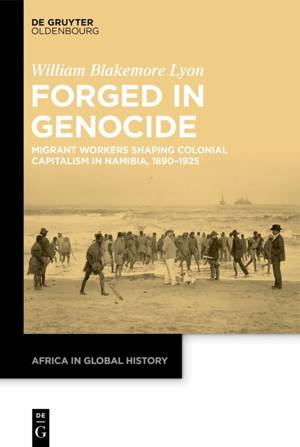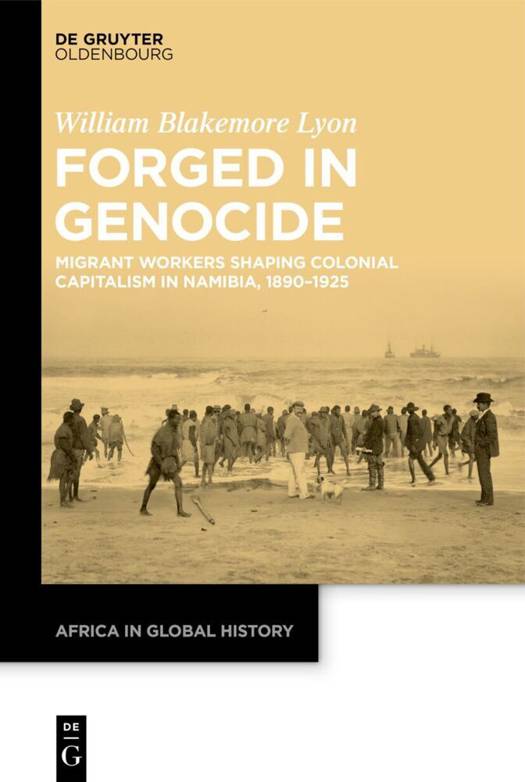
- Afhalen na 1 uur in een winkel met voorraad
- Gratis thuislevering in België vanaf € 30
- Ruim aanbod met 7 miljoen producten
- Afhalen na 1 uur in een winkel met voorraad
- Gratis thuislevering in België vanaf € 30
- Ruim aanbod met 7 miljoen producten
Forged in Genocide
Migrant Workers Shaping Colonial Capitalism in Namibia, 1890-1925
William Blakemore LyonOmschrijving
Forged in Genocide traces the early history of colonial capitalism in Namibia with a central focus on migrants who came to be key to the economy during and as a result of the German genocide of the Herero and Nama (1904-1908). It posits that Namibia, far from being a colonial backwater of the early 20th century, became highly integrated into the labor flows and economies of West and Southern Africa, and even for a time was one of the most sought-after regions for African migrants because of relatively high wages and numerous opportunities resulting from the war's demographic devastation paired with an economic frenzy following the discovery of diamonds. In highlighting the life stories of migrants in Namibia from regions as diverse as the Kru coast of Liberia, the Eastern Cape of South Africa, and the Ovambo polities of Northern Namibia, this work integrates micro-history into larger African continental trends. Building off of written sources from migrants themselves and utilising the Namibian Worker Database constructed for this project, this book explores the lives of workers in early colonial Namibia in a way that has hereto not been attempted.
Specificaties
Betrokkenen
- Auteur(s):
- Uitgeverij:
Inhoud
- Aantal bladzijden:
- 338
- Taal:
- Engels
- Reeks:
- Reeksnummer:
- nr. 9
Eigenschappen
- Productcode (EAN):
- 9783111374659
- Verschijningsdatum:
- 22/07/2024
- Uitvoering:
- Hardcover
- Formaat:
- Genaaid
- Afmetingen:
- 156 mm x 234 mm
- Gewicht:
- 657 g

Alleen bij Standaard Boekhandel
Beoordelingen
We publiceren alleen reviews die voldoen aan de voorwaarden voor reviews. Bekijk onze voorwaarden voor reviews.












